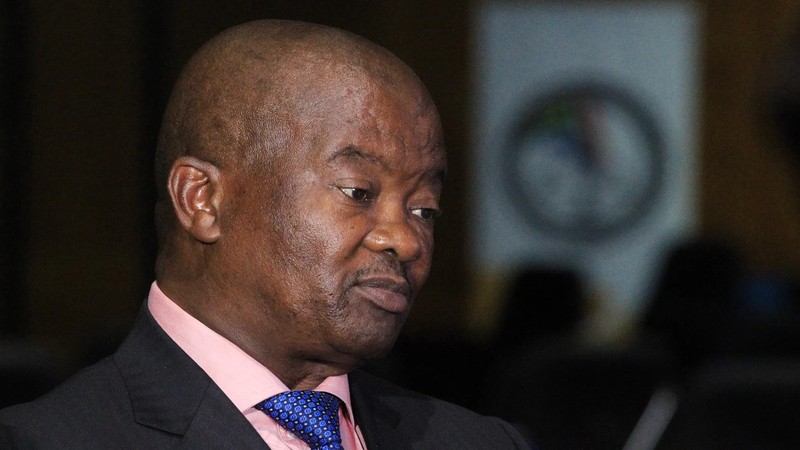Holomisa exposes alleged ‘mega-looting’ at PIC and demands Ramaphosa act now
The governance crisis engulfing South Africa’s Public Investment Corporation (PIC) has reached a critical juncture, with United Democratic Movement (UDM) leader General Bantu Holomisa calling on President Cyril Ramaphosa and PIC chairperson Songezo Zibi to act swiftly and decisively.
In a letter dated 29 October, Holomisa warned that the R3.5 trillion managed by the PIC on behalf of public servants’ pensions is “at enormous risk” due to persistent corruption, mismanagement and political capture —“a situation of enormous proportions that rivals the State Capture scandal itself”.
He cited the Mpati Commission — established in 2018 by Ramaphosa to investigate impropriety at the PIC — as having exposed systemic governance failures, particularly within the unlisted investments portfolio, the Isibaya Fund.
“Instead of acting on the Mpati Commission’s recommendations for transparency and fiduciary responsibility,” Holomisa wrote, “the rot continues unchecked.”
He described an entrenched culture of “continued looting, mismanagement, and administrative bungling from top to bottom at the PIC”, warning that the crisis can no longer be deferred to another commission of inquiry.
Among the examples cited is the Lanseria Airport Holdings deal.
Holomisa said that around 2013, Harith General Partners, a group of BEE partners, and the Government Employees Pension Fund (GEPF) invested in Lanseria Airport.
“The BEE partner, Acapulco Trade and Invest, was fully funded by the PIC with a loan of about R350 million, to be repaid from future dividends. More than a decade later, the loan remains unpaid and has ballooned to over R600 million, leaving the investment deeply underwater. Instead of writing it off, the PIC and its BEE partner conjured a revaluation, declaring the asset suddenly worth R1 billion. The PIC then took over the BEE partner’s shares as security and astonishingly concluded that it now owed the BEE partner R400 million. In other words, a failed investment was transformed on paper into a profit for the debtor, creating R400 million of value out of thin air. From a debt of R600 million with no repayment capacity, the BEE partner miraculously walked away with a R400 million windfall (theBEE shareholders got their share this month and they are allegedly fighting over the loot).”
Holomisa also raised alarm over a proposed acquisition of airline FlySafair, reportedly valued at R7.9 billion—nearly double its estimated fair market value. He likened the deal to the recently aborted investment in Karan Beef and cautioned that it could result in “massive value destruction”.
Further allegations point to internal dysfunction. In October, Chief Investment Officer Kabelo Rikhotso was suspended amid “power struggles” and alleged political interference. Holomisa argued that such factionalism threatens the institution’s integrity.
He also referenced the July 2025 bribery scandal involving former Unlisted Investments head Thabiso Moshikara, who was accused of soliciting a R3 million bribe.
Daybreak Foods, once a flagship black economic empowerment investment, was also highlighted. Despite being placed in business rescue in May 2025 and repeatedly posting losses, the PIC injected an additional R150 million in July. Holomisa said this illustrated the PIC’s “lack of effective oversight, proper risk assessment, and consequence management”.
He condemned the PIC board as “unfit for purpose”, citing a lack of chartered accountants and investment professionals. He also questioned the Finance Minister’s appointment of an allegedly unqualified board member, Mr Maseko, suggesting the move may have been either negligent or deliberately misleading.
Holomisa further implicated major South African banks, accusing them of advising on reckless deals that benefited them through secured transactions, while the PIC absorbed the risk.
“Some of the top South African banks have been involved in advising the PIC to participate in many transactions that exposes the PIC to reckless investment dealing, while at the same time participating in the more secured portion of the deals. These top banks need to be held accountable for their role in value destruction. They hide behind the so-called Chinese Walls. There is one bank that has been more prominent in the deals involving the PIC/GEPF. Both as an advisor and a participant in the more secured portion,”Holomisa wrote.
His letter called for immediate action, including:
-
SCOPA hearings involving PIC and Government Employees Pension Fund (GEPF) executives;
-
Forensic audits of the Isibaya Fund by the Auditor-General and Special Investigating Unit;
-
A review of the PIC board’s composition and independence;
-
Quarterly public disclosure of all Isibaya Fund investments;
-
Performance-linked pay for investment dealmakers; and
-
A moratorium on the Isibaya Fund’s activities, with its developmental mandate possibly transferred to the Development Bank of Southern Africa or the Industrial Development Corporation.
“The loss ratios of over 39% are purely criminal. No credible institution allows such brazen looting in the name of empowerment,” Holomisa wrote. “Ultimately, the State and the South African public are the real losers.”
He warned that without urgent reform, the PIC would remain “a vehicle for political patronage”, jeopardising the financial future of millions of workers.
“The sophistication of the financial engineering and contracts used to hide the looting means many hardly understand the deal structures,” he said. “South Africa needs to know that something worse than State Capture continues to thrive at the PIC.”
thabo.makwakwa@inl.co.za
IOL Politics

